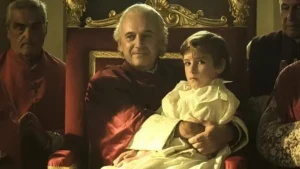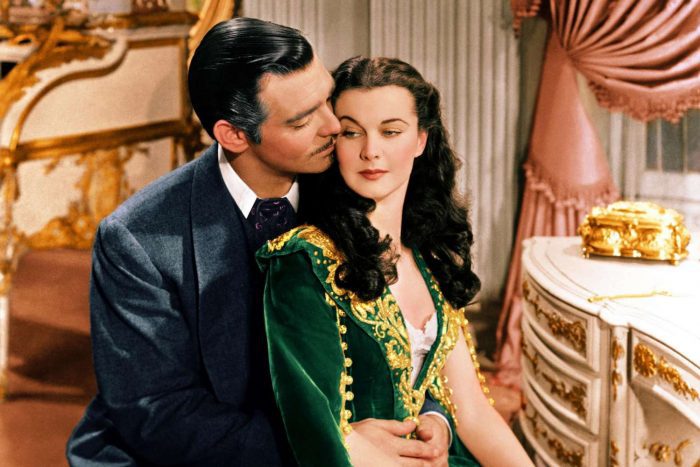The Cinema Arts Centre will host a five-day celebration of Jewish Cinema and culture, with films that include thoughtful documentaries, captivating dramas, and historically significant films
This May, the Long Island Jewish Film Festival will return to Huntington’s Cinema Arts Centre for the festival’s second year. The second season of the Long Island Jewish Film Festival will span five days, May 3rd – May 7th, and will include screenings of films at the forefront of Jewish cultural storytelling.
The festival will feature films that include innovative documentaries, riveting dramas, and rarely seen pieces of film history, all curated by David Schwartz, Curator at Large at the Museum of the Moving Image, who will also host and lead audience discussions after many of the festival’s screenings.
The Long Island Jewish Film Festival was organized to help celebrate the rich cultural traditions and history of the Jewish community in America and abroad. The films highlighted in the festival represent the apex of both historic and modern Jewish cinema, featuring films from over a 100 years ago, through today.
The Long Island Jewish Film Festival will begin on Friday, May 3rd with a screening of powerful historical drama “Kidnapped”. The second day of the festival will feature screenings of three films: the enthralling dramas “The Other Widow” & “The Goldman Case”, as well as the acclaimed new documentary “How to Come Alive with Norman Mailer”. Sunday, the third day of the festival, will include a screening of the historic 1923 silent film “The Ancient Law”, with a live score performed by pianist Donald Sosin & klezmer violinist Alicia Svigals, a screening of the 1980 documentary “Brighton Beach”, featuring a discussion with director Susan Wittenberg in-person, as well as an encore screening of the film “Kidnapped” for those that observe shabbat and couldn’t attend the Friday screening.
The remaining days of the festival will also feature encore screenings of the films “The Goldman Case”, and “The Other Widow”. The screenings of “The Other Widow” and “How to Come Alive with Norman Mailer” will feature pre-record Q&As with the film’s directors and our host and curator David Schwartz.
Public tickets are $16 per screening with the exception of the film “The Ancient Law”, for which public tickets will cost $18.
The Films:

Kidnapped
Friday, May 3rd at 7 PM
& Sunday, May 5th at 7 PM
$16 Public | $10 Members
The great Italian filmmaker Marco Bellocchio, now 84, has made one of the most stylish and operatic films of his career. Kidnapped depicts the scandalous true story of Edgardo Mortara, a six-year-old Jewish boy who, in 1858, was baptized by his caretaker, and abducted from his family by order of the Pope, to be raised as a Catholic. Edgardo became the center of an international firestorm as his parents fought to retrieve their child from the clutches of a ruthless theocratic government; the case led to historical change. (2023, 134 mins)

The Other Widow
Saturday, May 4th at 2 PM
& Tuesday, May 7th at 7 PM
Featuring a pre-recorded Q&A with director Maayan Rypp
$16 Public | $10 Members
Nominated for 9 Ophir awards (the Israeli Oscars) including Best Film, Best Director, and Best Actress, this wonderfully observed comedic drama follows Ella (Dana Ivgy) a costume designer who is in a long-term affair with Assaf, a married playwright. When Assaf dies unexpectedly, Ella decides to attend Shiva while keeping her identity under wraps, diving into a world once forbidden to her. Through intimate encounters with his family, she examines her place in his life and eventually demands her legitimate right to mourn. (2022, 83 mins)

The Goldman Case
Saturday, May 4th at 4 PM
& Monday, May 6th at 7 PM
$16 Public | $10 Members
This gripping courtroom drama delves into the sensational and widely followed 1976 trial of Pierre Goldman, a Jewish activist defending himself against multiple charges, including murder. Goldman steadfastly maintained his innocence, while the facts of his case became a flash point for a generation, raising questions of antisemitism and political ideology. Directed with vérité realism and pinpoint historical precision, The Goldman Case is both subdued and electrifying, communicating so much about the complexity of Jewish identity in recent European history. It was the opening night film in the Director’s Fortnight section at Cannes. (2023, 115 mins)

How to Come Alive with Norman Mailer
Saturday, May 4th at 7 PM
Featuring a pre-recorded Q&A with director Jeff Zimbalist
$16 Public | $10 Members
Norman Mailer, a towering figure in American literature, had a life that was certainly stranger than fiction. From his formative years in Brooklyn, through his career as a preeminent cultural voice, we follow Mailer’s life through 6 marriages, 9 children, 11 bestselling books and 2 Pulitzer Prizes as he solidifies his place in the literary pantheon. With access to Mailer’s family and never before seen footage, this biography details the life and times of an American icon. (2023,100 mins)

The Ancient Law
Sunday, May 5th at 2 PM
With live score performed by Donald Sosin and Alicia Svigals
$18 Public | $12 Members
This rarely seen silent film from Weimar Era Germany tells the dramatic story of Baruch, a young shtetl Jew and the son of a Rabbi, who leaves his family and community, seeking a secular career as a stage actor. Featuring wonderful scenes depicting shtetl life, the film paints a complex portrait of the tension between tradition and modernity. Like so many other Jewish artists of the era, director E.A. Dupont and star Ernst Deutsch were both forced to flee their homelands as the Nazis rose to power. (1923, 128 mins)

Brighton Beach
Sunday, May 5th at 5 PM
With director Susan Wittenberg in-person
$16 Public | $10 Members
Set against the iconic Coney Island boardwalk, Brighton Beach is a neighborhood in constant re-formation. This 1980 documentary offers a genuine portrait of the immigrant communities that changed the Brooklyn neighborhood—mostly Soviet Jews and Puerto Ricans—as they mingle on the boardwalk with long-time residents, eye one another, and coexist around a shared sense of uprootedness. From directors Susan Wittenberg and Carol Stein, Brighton Beach is an unposed, seductively shot, color film about life’s simple pleasures and the creating of a community. (2080, 55 mins)
Location:
Cinema Arts Centre, 423 Park Ave, Huntington, NY 11743
You can purchase tickets or find more information about these and other events on the Cinema Arts Centre website: www.cinemaartscentre.org
























